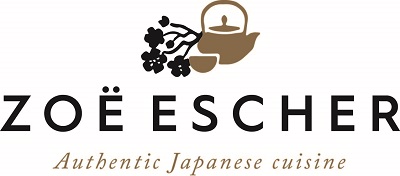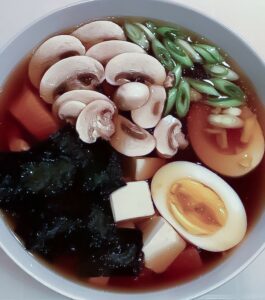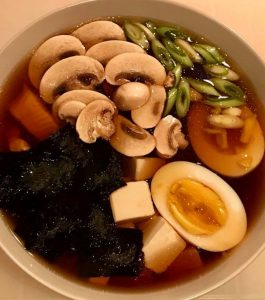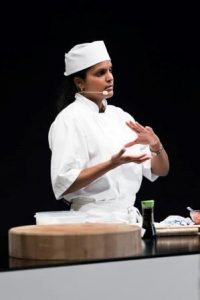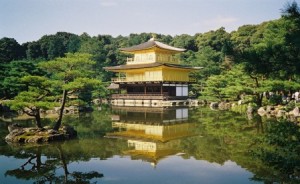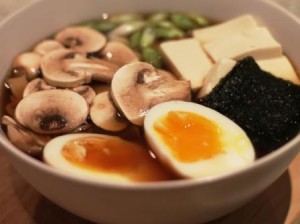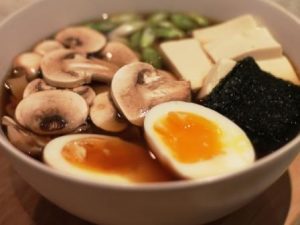
The freezing cold of winter can really take our breath away, but luckily there is a delicious and nutritious Japanese dish just within reach – the hot Japanese noodle soups. The heart-warming dishes are not only a feast for the taste buds, but they also give your body a boost on cold days.
The traditional Japanese noodle soups are a healthy meal that combines delicate flavors with healthy nutrition.
The soup stock is made from scratch with Japanese ingredients from Tokyo. Depending on which soup is involved, ramen or udon noodles are added.
Vegetables such as seaweed, mushrooms, cabbage and other tasty ingredients add vitamins and minerals, while protein-rich toppings such as pork or tofu make the soup a complete meal.
Take part in class Japanese noodle soup course for beginners and learn to make the tasty and healthy Japanese dishes from scratch. Then you are well prepared when the weather changes, from rain, sun and snow which characterize the seasons in Denmark.
_
Zoë has held sushi courses and cooking classes for A. P. Moller – Maersk, Hugo Boss Nordic, Novo Nordisk, Novartis, Velux, Gorrissen Federspiel, Beierholm revision, Elbek & Vejrup and many more.
